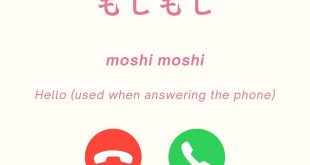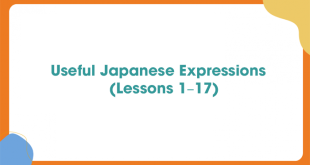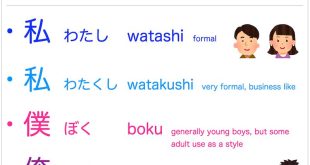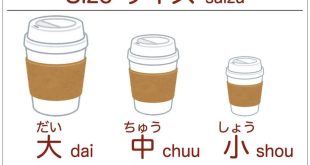learn-vocabulary-to-ask-questions-in-japanese-
Let’s learn vocabulary to ask questions in Japanese.





1. 誰 (だれ, dare) – who
Example:
誰ですか? (Dare desu ka?) → Who is it?
2. 何 (なに, nani) – what
Example:
これは何ですか? (Kore wa nani desu ka?) → What is this?
3. なぜ (naze) – why
Example:
なぜ遅れたのですか? (Naze okureta no desu ka?) → Why were you late?
4. どこ (doko) – where
Example:
トイレはどこですか? (Toire wa doko desu ka?) → Where is the bathroom?
5. いつ (itsu) – when
Example:
いつ行きますか? (Itsu ikimasu ka?) → When will you go?
6. どれ (dore) – which (among several)
Example:
どれが好きですか? (Dore ga suki desu ka?) → Which one do you like?
7. どんな (donna) – what kind of
Example:
どんな音楽が好きですか? (Donna ongaku ga suki desu ka?) → What kind of music do you like?
8. いくら (ikura) – how much
Example:
これはいくらですか? (Kore wa ikura desu ka?) → How much is this?
9. 何時 (なんじ, nanji) – what time
Example:
今は何時ですか? (Ima wa nanji desu ka?) → What time is it now?
10. どの (dono) – which (specific one, before a noun)
Example:
どの本がいいですか? (Dono hon ga ii desu ka?) → Which book is good?
The difference between similar ones like どれ vs どの, or なぜ vs どうして?
🔹 どれ vs どの
Both mean “which”, but they are used differently in a sentence.
どれ (dore) → used alone, when you’re asking “which one” among options.
Example:
この中でどれが好きですか?
(Kono naka de dore ga suki desu ka?)
Which (one) do you like among these?
どの (dono) → used before a noun, like an adjective.
Example:
どの本が好きですか?
(Dono hon ga suki desu ka?)
Which book do you like?
👉 Think of it like English:
“Which one?” → どれ
“Which [noun]?” → どの
🔹 なぜ vs どうして vs なんで
All mean “why”, but the nuance is a little different.
なぜ (naze) → formal, logical “why.”
Often used in writing, news, or formal speech.
Example:
なぜ地球は回っているのですか?
(Naze chikyuu wa matte iru no desu ka?)
Why does the Earth rotate?
どうして (doushite) → general, everyday “why.”
The most commonly used in conversation.
Example:
どうして遅れたの? (Doushite okureta no?)
→ Why were you late?
なんで (nande) → casual “why.”
Sounds more direct, sometimes even a bit accusing depending on tone.
Example:
なんで来なかったの?
(Nande konakatta no?)
Why didn’t you come?
👉 Think of it like this:
なぜ → formal, logical (like “for what reason…”)
どうして → neutral, polite everyday “why”
なんで → casual, sometimes blunt
Related Post:
Basic Japanese in the Workplace
How to say “Agree” with someone casually in Japanese
 Learn Japanese
Learn Japanese







